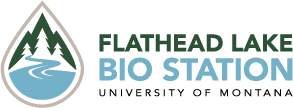Water Quality 101
Water Quality 101
Water quality refers to the chemical, physical, and biological characteristics of water. It’s a measure of the condition of water relative to the use requirements. Maintaining acceptable water quality is crucial for drinking water supplies, recreational activities, agricultural irrigation, industrial processes, and the survival of aquatic life. The acceptable level of water quality varies greatly depending on its intended use. Understanding water quality is essential for ensuring safe drinking water and protecting ecosystems. Monitoring is essential to addressing the challenges that come with safeguarding our waters for future generations. Below are resources to familiarize yourself with water quality basics that will help you better understand your monitoring efforts.
Resources
A brief introduction to water quality for the non-scientist that includes the physical, chemical and biological characteristics of water.
ttps://youtu.be/klry06li2GQ?si=WmF9r0mGuQUSuATE
---
Water Quality Basics takes learners on a virtual expedition through water quality issues, including primers on the hydrologic cycle and determinants of water quality. The course includes sections on issues such as fate and transport analysis, iron and manganese, hard water, fire in the watershed, animal feeding operations, nutrients, wastewater treatment, and emerging contaminants. This course contains 1.0 hour of reading content and 1.5 hours of video content for a total of 2.5 hours. Nearly 50 short videos make content presentation lively and engaging.
Water Quality Basics is brought to you by the Montana Water Center in partnership with Academic Technology and Outreach at Montana State University. The course was developed with funding from the Established Program to Stimulate Competitive Research (EPSCoR), a National Science Foundation-supported effort that has grown science and technology infrastructure in Montana since 1980.
---
A Water Quality 101 webinar collaboratively hosted by Montana State University Extension, Montana Department of Environmental Quality, Monitoring Montana Waters, and MWCC on April 25, 2024. Geared for volunteer monitoring program coordinators and anyone with an interest in water quality topics, the webinar included information about the fundamentals of water quality as they relate to water monitoring.
---
The MWCC Water Committee led the development of this centralized hub, which includes information about Montana’s water monitoring programs as well as other resources relevant to watershed monitoring work.
In the Monitoring Directory, you can search for water monitoring programs statewide based on criteria including type of monitoring and objectives. You can also find contact information for the organizations leading these programs.
The Monitoring Library provides over 200 trusted resources relevant to watershed monitoring work, including tools for starting your own monitoring program.
---
Water Resources | Montana DEQ
Water quality is an important topic for all Montanans. DEQ is charged with maintaining and improving clean water in Montana’s rivers, lakes and below the surface—in our groundwater. Montana’s waters are a vital state resource providing recreation, fishing, tourism and drinking water. Our work is complex, scientific, and interconnected. Learn more about how DEQ works to protect clean water for all Montanans.

